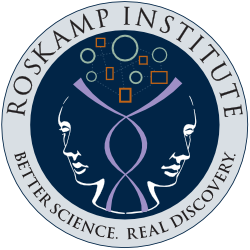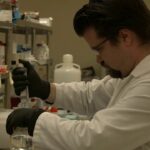For over 30 years now, 250,000 veterans from the 1990-1991 Gulf War (GW) have suffered from a chronic and debilitating multi-symptom illness, called Gulf War Illness (GWI). Veterans with GWI report heterogeneous symptoms consisting of chronic pain, fatigue, and memory problems. To date, this illness remains difficult to treat given its complex clinical presentation and the underlying biological features. We have recently shown that disturbances in fat (lipid) breakdown may be a feature of GWI, present in both animal models of GWI and in blood from veterans suffering from this condition. We are now looking for ways to better understand whether changing the body’s lipid composition can help improve the general health and well-being of veterans with GWI.
Within the body’s cells, the systems involved in the processing of lipids are important for maintaining healthy lipid levels. We recently performed laboratory studies with a naturally occurring lipid breakdown product, oleoylethanolamide (OEA), that targets the lipid-processing systems. We determined that oral administration of OEA for 6-months improved learning and memory, and reduced fatigue-like behavior in a GWI mouse model. These studies also showed that OEA administration restored normal processing of dietary fats and reduced brain inflammation in GWI mice.
Currently, we are testing this strategy in a pilot clinical study to examine how OEA affects blood lipids and whether this can be beneficial for brain function and general health of veterans with GWI. This study is funded by the Congressionally Directed Medical Research Program (CDMRP) GWI Research Program (GWIRP) which supports these and other scientific studies that are aimed at improving the health of veterans with GWI. The purpose of our research study is to see if OEA may help maintain a normal lipid balance in the body. As mentioned above, veterans with GWI have lipid profiles that indicate a less than optimal functioning of the body’s systems. We will also evaluate markers of a healthy immune response with OEA supplementation in ill Gulf War veterans. Translational research such as this advances our laboratory-based science into clinical application and remains the focus for all research conducted at the Roskamp Institute.
In this randomized double-blind placebo-control clinical study, enrolled participants will be asked to take the study intervention in a blinded manner for the first phase of the study, as well as to undergo study procedures to collect samples and clinical information. Participants will take either the OEA supplement or a matching pill that doesn’t have OEA. In the second phase of the study, all participants will receive the OEA supplement. This will help determine the effects of OEA on blood markers associated with lipid processing in the body and inflammation. From this work, we will learn if natural lipid supplements can help the body retain normal blood lipid profiles and maintain normal activities of daily living in ill GW veterans.
For more information about the trial, please contact Grace Bartenfelder at (941) 256 – 8019 ext. 3046.

